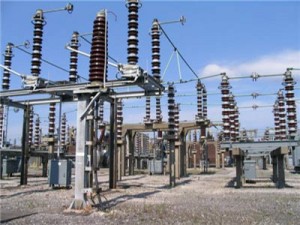By Sami Zaptia.

London, 28 April 2016:
A ‘’technical fault’’ caused long and wide ranging power cuts across many Libyan cities yesterday, the . . .[restrict]General Electricity Company of Libya (GECOL) reported yesterday
GECOL said that a number of generation units at Zawia, Khoms and Ruwaise went out of service which led to the instability of the network. This, GECOL reported, led to power cuts across a wide number of Libyan cities, including the capital Tripoli.
GECOL said that its technicians were working on solving the problem and gradually restoring power as soon as possible. Just before midnight yesterday GECOL reported that most of the out of service units were back operating and that it hoped to return the rest to service today.
The return of long power cuts has been met, unsurprisingly, with displeasure by the Libyan public. Many parts of Tripoli suffered 4 to 6 hours of power cuts. Some areas reported 9 and 11 hours of power cuts. Many areas reported recurring power cuts yesterday.
The issue of power cuts could prove one of the biggest challenges for Faiez Serraj and the Presidency Council/Government of National Accord (PC/GNA) who had been hoping for some quick wins to help consolidate their position.
Many Libyans were, perhaps unrealistically, expecting the GNA to have some immediate positive effects on the ground. Solving power cuts is one of them.
However, Serraj and the PC/GNA have only been in Tripoli for 29 days and have only just started taking control of various ministerial buildings. Moreover, former Deputy Libyan Prime Minister and Electricity Minister Awad Barasi had previously explained to Libya Herald that the short term solution to power cuts is the renovation and maintenance of a number of existing power stations by foreign technicians.
Whilst Libyan technicians are willing and able to carry out quite a lot of urgently needed maintenance on the various power stations, some work can only be done by the foreign construction or manufacturing companies. Some work is part of the contracted guarantee y the manufacturer / installer and cannot be carried out by Libyan technicians.
These technicians, however, are not realistically expected to be able to arrive and operate in Libya until the security situation is improved. Hence, security and the lack of it continues to be at the heart of many, if not most, of Libya’s everyday problems.
GECOL currently produces 6,800 MW, but peak Libyan consumption on a very hot summer day or a very cold winter day is 8,800 MW. Experts believe that if all the generation units such as the ones at the Sirte Gulf power station are operating, this 2,000 MW deficit could be met and there would be adequate electricity supply in the short term. [/restrict]







